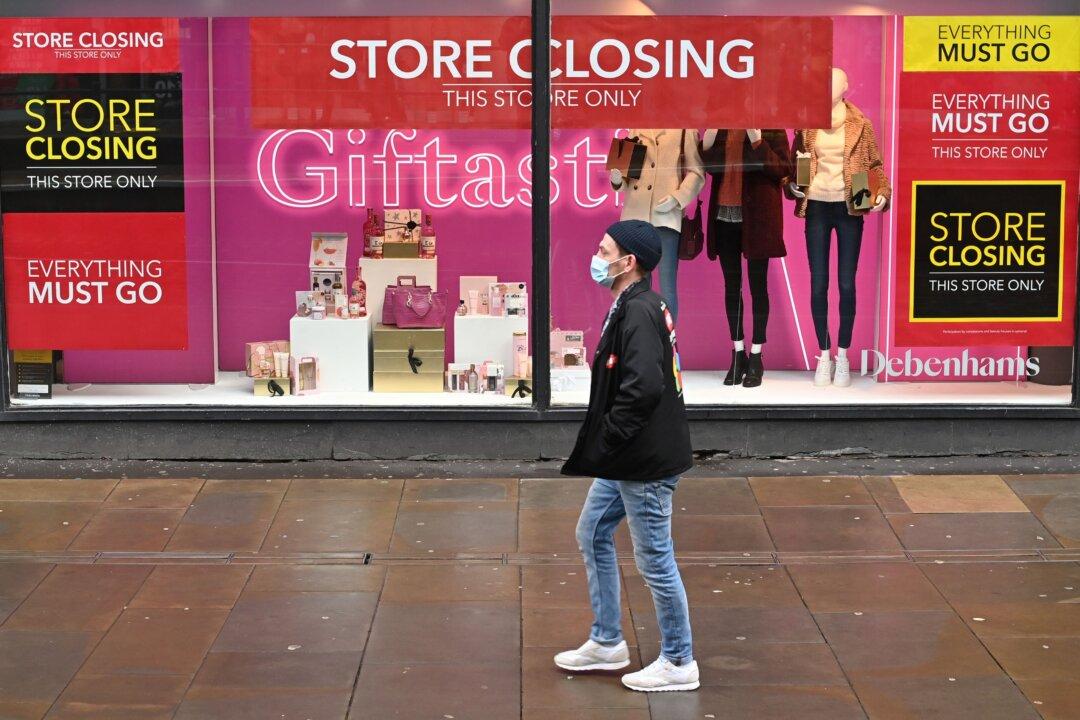UK towns and cities could lose nearly 400,000 jobs and up to 40 percent of their retail offerings as consumers shift to online shopping due to the impact of the pandemic, a new KPMG research report reveals.
“Online sales have grown by 50 [percent plus] in nine months, accelerating a trend that would have taken five years plus to deliver in normal circumstances,” Paul Martin, head of retail at KPMG in the UK, said in the report published on Thursday.




